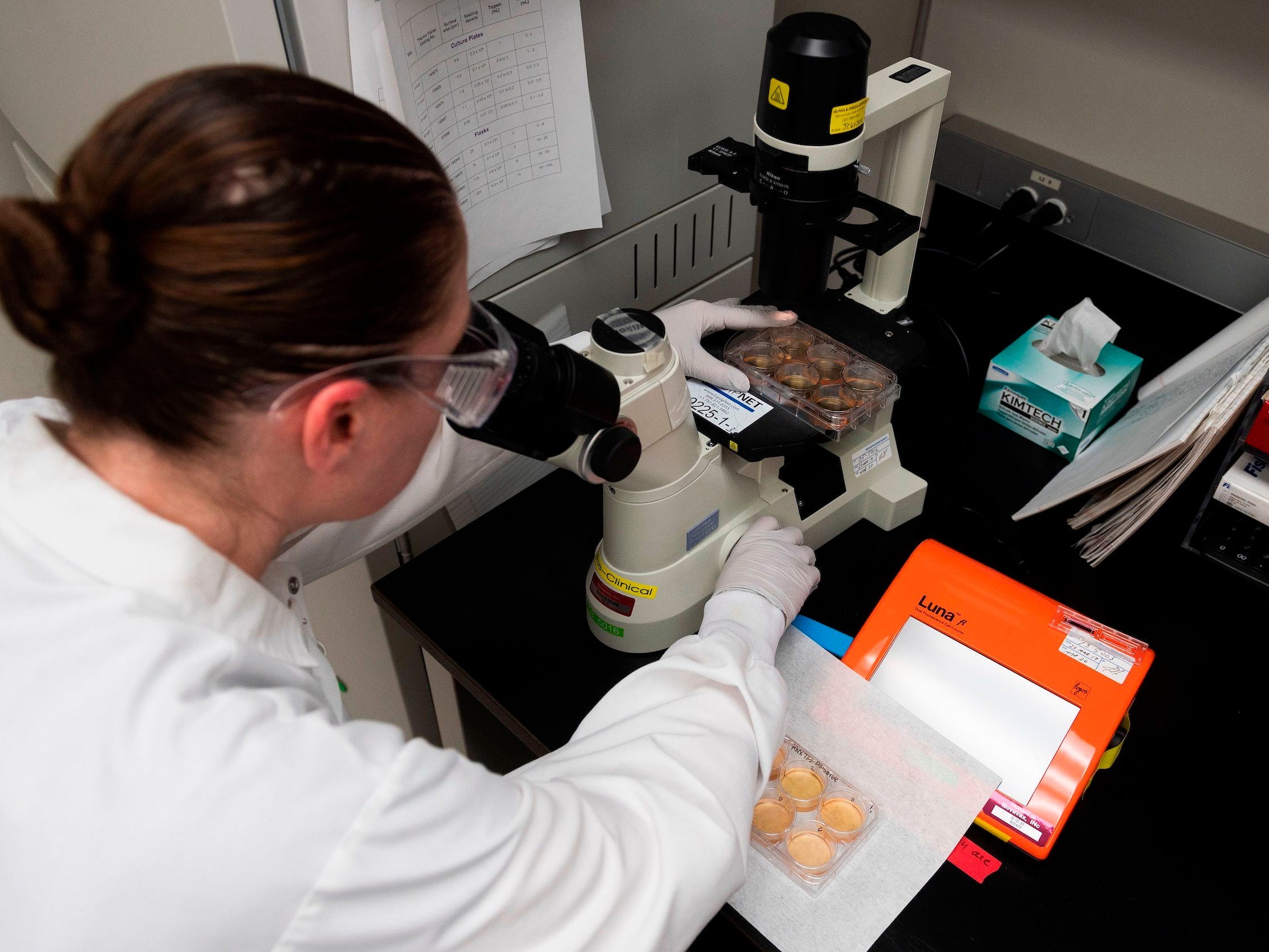
Andrew Caballero-Reynolds/AFP
- The first coronavirus vaccines in the US may only be “moderately effective” and won’t reduce the need to wear masks, in part due to the country’s haste to develop a treatment, The New York Times reported.
- Instead of vetting different companies’ vaccines against each other, a process called the “master protocol,” the US incentivized pharmaceuticals to do their own testing.
- This approach is faster, but makes it harder to judge which vaccine is the most effective, per the NYT.
- President Donald Trump has said he wants the drug ready by January, and indicated he could bypass health regulations and approve an experimental vaccine.
- Visit Business Insider’s homepage for more stories.
The US is working fast to develop a vaccine to treat COVID-19 — but experts say this speed may result in less effective treatment.
The Trump administration’s Operation Warp Speed team, tasked with hastening the development of a coronavirus vaccine, declined to test different vaccines together in favor of letting individual companies separately vet their own, The New York Times reported on Monday.
Testing different types of vaccines against each other, known as the “master protocol,” could have given Americans a better sense of which vaccines work best and led to a more effective vaccine, the NYT said.
But a master protocol would have taken too long, Moncef Slaoui, the head of Operation Warp Speed, told the NYT. And pharmaceutical companies may not have incentive to reveal how their vaccines stack up against competitors.
Without testing different types of vaccines in the same environment, Americans won’t necessarily know which vaccine works better than the other. As a result, each company may end up releasing a vaccine that is only moderately effective, and that won’t reduce the need for masks.
President Donald Trump has made speed in developing a vaccine a central talking point of his reelection campaign. He has boasted the vaccine will be ready by January, and indicated he could bypass health regulations and approve an experimental vaccine.
Pfizer, Moderna, and AstraZeneca all said they expect to release data on the effectiveness of their COVID-19 vaccines before the end of the year. Experts will first look at this early data to determine whether they were safe to take, and then determine the effectiveness. Scientists have told Business Insider that a vaccine that's 50% effective — meaning half of every 100 people can still get sick from COVID-19 — would be "disappointing," but still a "worthwhile contribution."
Experts have long been cautioning Americans to not assume getting a vaccine will mean life goes back to pre-pandemic normalcy. Maria Elena Bottazzi, a vaccine developer at Baylor College of Medicine, told Business Insider's Andrew Dunn that she expects the first vaccines to reduce the disease's symptoms but not prevent against infection.
If you have information to share, you can reach the author at [email protected].

